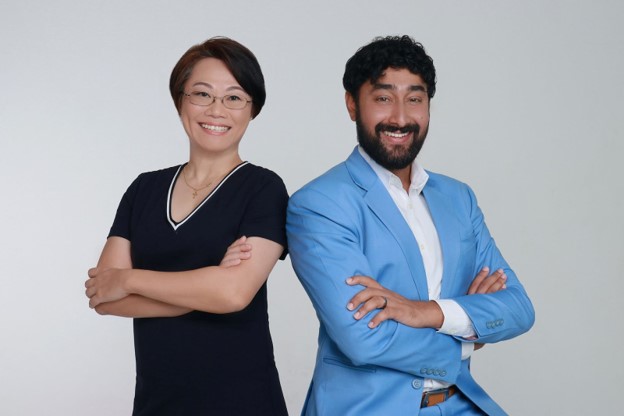The rate of dementia is expected to double every 20 years, but many tools for early detection, like MRI scans, are difficult for patients to access. Neurowyzr wants to help more people get brain healthcare through tools like its online Digital Brain Function Screen (DBFS). The startup, which has offices in Singapore and India, announced today it has raised $2.1 million in seed funding. The oversubscribed round was led by Jungle Ventures and Peak HV’s (formerly Sequoia India and Southeast Asia) Surge program, with participation from angel investors.
Neurowyzr has now raised $3.3 million since it was founded in 2019 by Nav Vij and Pang Sze Yuan. It will participate in 2023 Medtech Innovator Asia Pacific, the world’s largest medtech accelerator program.
Vij, Neurowyzer’s chief digital neuroscientist, became interested in early brain decline and related therapies while studying for his neuroscience degree at the University of Melbourne. One of his family members was diagnosed with a neurodegenerative disease at a young age, which motivated Vij to remove obstacles to brain healthcare. Pang, who has worked on pioneering health initiatives including Asia’s first heart failure monitoring project, got interested in brain healthcare because she saw the impact brain conditions can have on family members, especially women caregivers.
Pang told TechCrunch that a lot of work in neurology currently focuses on treatment for serious brain conditions. But brain decline can start 20 to 40 years before a condition like dementia, mental illness or stroke emerges. As a result, early detection is crucial.

Neurowyzr co-founders Pang Sze Yunn (CEO) and Nav Vij (chief digital neuroscientist)
Traditional brain tests like pen-and-paper tests can be affected by tester bias, while MRI and CT scans are expensive and inaccessible to many patients. Neurowyzr wants to address the gap with its digital neuroscience assessment tool, the Digital Brain Function Screen (DBFS). Meant to be faster and less costly than traditional cognitive testing. DBFS is currently used by healthcare organizations like Parkway Shenton, SATA Commhealth, Farrer Park Hospital, MHC Medical Centre (Amara) and O’Joy in Singapore. It has also completed a pilot with a large private hospital chain in India and is registered with the U.S. Food and Drug Administration, Singapore Health Sciences Authority and Australia Therapeutic Goods Administration.
Pang said the DBFS can be completed in 15 to 20 minutes. It assesses a patient’s immediate memory, working memory, attention and executive brain function through a series of gamified neuroscience puzzles. For example, one puzzle has dots with a number on each scattered across the screen, and asks the users to connect them in order. Another shows a series of numbers that users need to memorize and then write in order. DBFS is hosted online, so patients can access it through a web browser link at home, though it was designed for primary care settings.
Neurowyzr’s new funding will be used on product development and regional expansion in Southeast Asia and India. The startup is currently working with academic organizations like the NTU Lee Kong Chian School Medicine’s Dementia Research Centre to develop more digital brain health solutions, with the goal of decreasing undetected cases of early brain decline.
In a statement, Jungle Ventures healthcare partner Seemant Jauhari said, “Projected numbers tell a stark story for Asia: over the next two decades, more than 66 million individuals could face dementia, while mild cognitive impairment could affect over 400 million. Neurowyzr is a direct response to this challenge. By assessing brain and mental health promptly, we’re building a proactive defense against potential epidemic.”







